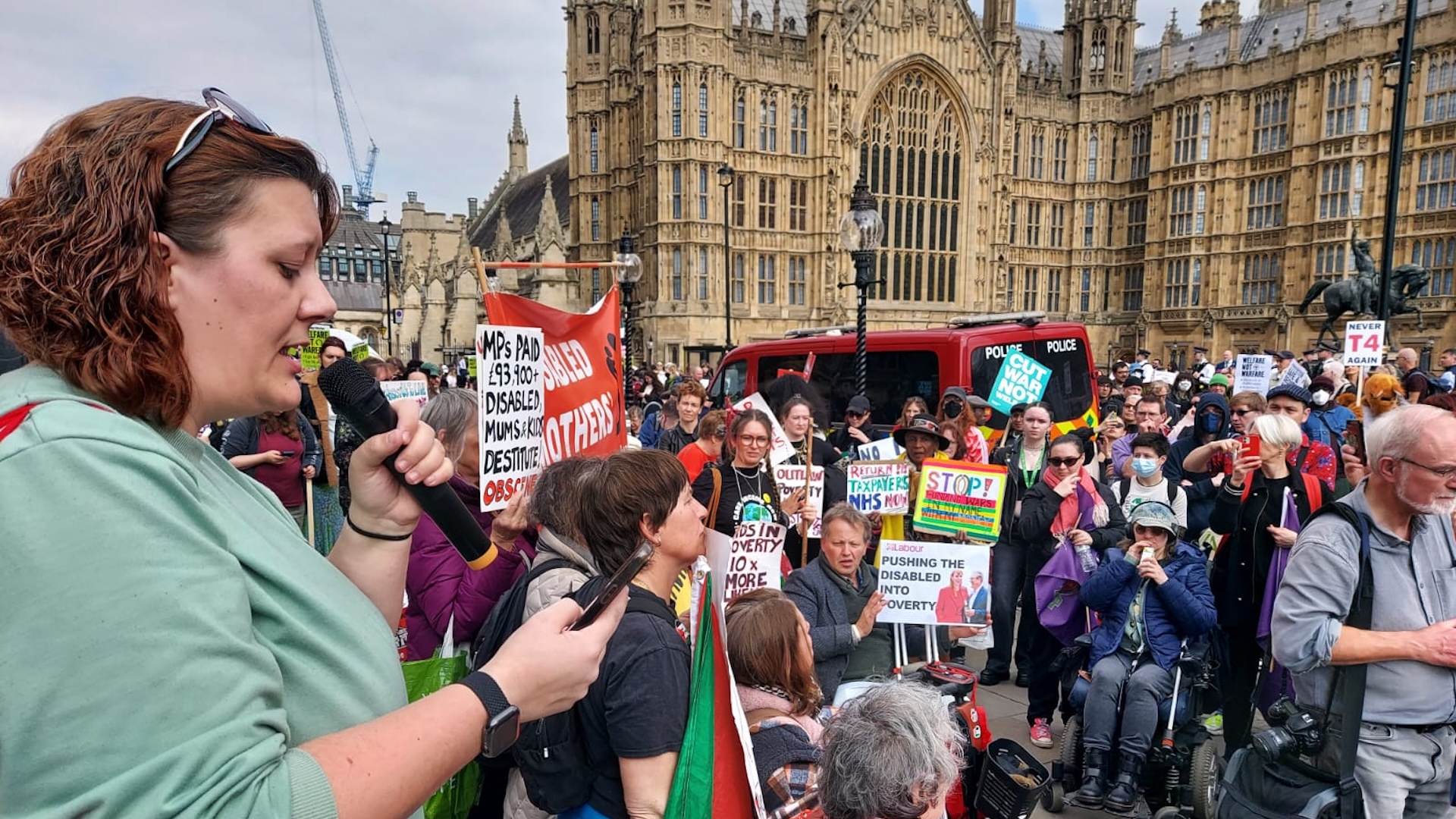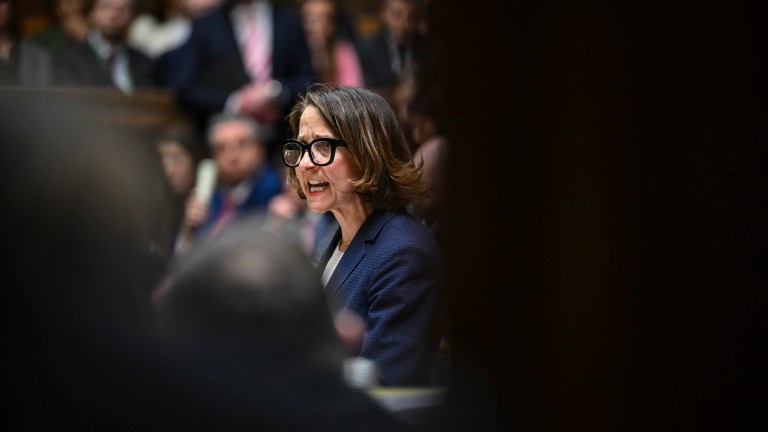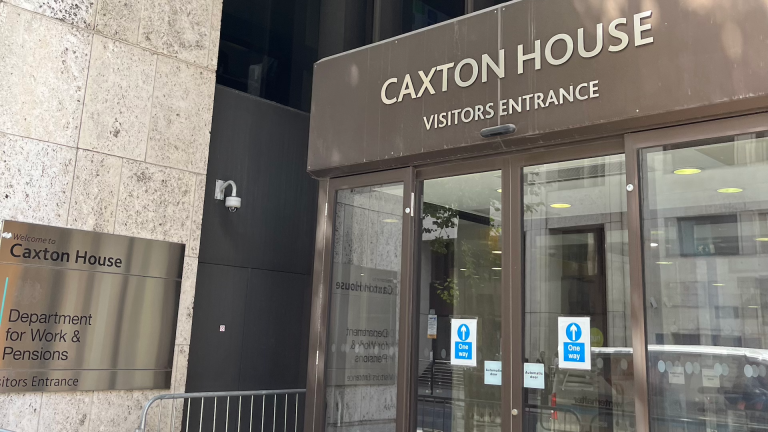The impact statement was published on the day chancellor Rachel Reeves announced her Spring Statement, in which she doubled down on cuts to disability benefits.
“The Labour Party is the party of work. We believe that if you can work, you should work,” Reeves said.
The DWP points out that 3.8 million people will also gain money – mostly through the £7 per week increase to universal credit – with an average increase of £420 a year per person.
Paul Kissack, chief executive of the Joseph Rowntree Foundation, said: “The chancellor said today that she would not do anything to put household finances in danger, yet the government’s own assessment shows that their cuts to health related benefits risk pushing 250,000 people into poverty, including 50,000 children. This will harm people, deepening the hardship they already face.
“The chancellor also said the world has changed, and today’s announcement places the burden of that changing world on the shoulders of those least able to bear the load. With living standards for the poorest under continuing assault, the government needs to protect people from harm with the same zeal as it attempts to build its reputation for fiscal competence.”
The Office for Budget Responsibility (OBR) estimates that 800,000 people will lose money from their PIP as a result of the changes to the eligibility criteria. Of these, 400,000 people will lose their PIP entirely because they are not eligible for the mobility element.
Advertising helps fund Big Issue’s mission to end poverty
Additionally, three million people will lose money from the changes to the health element of universal credit – with cuts amounting to £500 a year for existing claimants and £3,000 for new claimants.
As a result of carer’s allowance and the universal credit care element being connected to PIP, around 150,000 carers will lose financial support. This equates to cuts of £500m to the carers’ benefits bill.
A spokesperson for the National Children’s Bureau said: “Many families struggling to make ends meet rely on the welfare system to stay afloat. Cuts to health benefits will only cast them further adrift. By DWP’s own admission, the combined effect of the package of welfare reforms will push tens of thousands of children deeper into poverty and make life harder for millions more.
“The chancellor must now take further action in the spending review to build on the funding promises already made, so that families get the help they are crying out for, as soon as it is needed, through properly funded services and a fit-for-purpose benefits system.”
Alison Garnham, chief executive of Child Poverty Action Group, said “growth and better living standards are not achieved by taking money from families with the least”.
“Government must invest in social security support – not cut it – for the most vulnerable, or risk being remembered as the Labour administration under whose watch child poverty continued to rise,” she said.
Advertising helps fund Big Issue’s mission to end poverty
The largest group affected by the changes will be single women, the Women’s Budget Group has highlighted, making up 44% of those losing out, at an average of £1,610 a year.
Mary-Ann Stephenson, director of the Women’s Budget Group, said: “The government is making decisions that will seriously impact people’s lives up and down the country, particularly children, women and disabled people, based on forecasts that may not even materialise in order to meet its own self-imposed spending rules. This is deeply disappointing and misguided.”
There are 2.8 million people out of work due to long-term sickness in the UK, and Labour ministers have repeatedly stressed that they want to see more people off benefits and in employment.
The OBR was unable to assess whether benefit cuts would lead to more people in work due to “insufficient information from the government on the policies announced and analysis of their likely economic effects”.
Tom Pollard, the head of social policy at the New Economics Foundation, added: “The DWP and the OBR between them have not yet been able to forecast any impact on employment outcomes. The government’s narrative to justify benefit cuts for ill and disabled people has completely fallen apart – it is clearer than ever that the real driver has been pressure to meet an arbitrary savings target.
“Resorting to the failed playbook of cuts and conditionality will push people into poverty and poorer health rather than helping them into work.”
Advertising helps fund Big Issue’s mission to end poverty
One in six people receiving PIP were in work in 2023, and experts argue that it is often crucial in helping disabled workers to remain in a job.
Ben Harrison, director of the Work Foundation at Lancaster University, said: “Making cuts of this nature risks making it significantly harder for many people to access employment. Cuts that heighten anxiety for disabled people – or end up pushing them into unsuitable work – are unlikely to lead to an increase in sustained employment and support economic growth.
“As the government consults on changes to disability benefits, it must listen to the voices of disabled people, and ensure measures don’t plunge more of those with long-term health conditions into poverty.”
Do you have a story to tell or opinions to share about this? Get in touch and tell us more. Big Issue exists to give homeless and marginalised people the opportunity to earn an income. To support our work buy a copy of the magazine or get the app from the App Store or Google Play.
Big Issue is demanding an end to extreme poverty. Will you ask your MP to join us?










